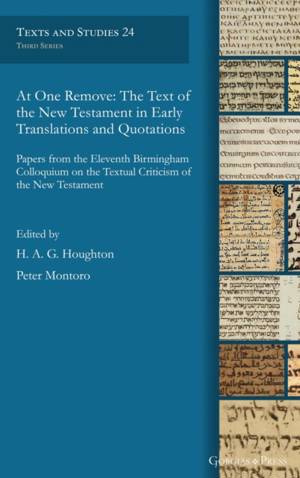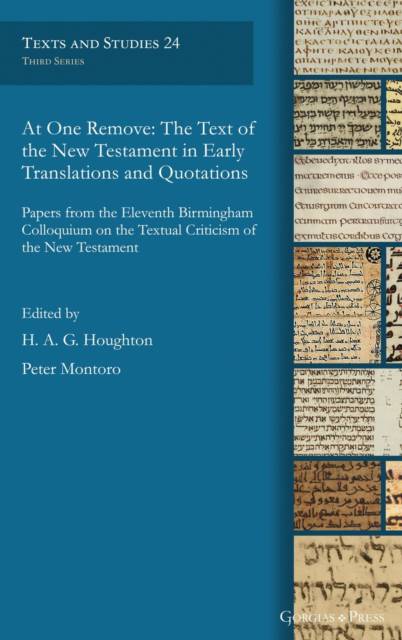
- Afhalen na 1 uur in een winkel met voorraad
- Gratis thuislevering in België vanaf € 30
- Ruim aanbod met 7 miljoen producten
- Afhalen na 1 uur in een winkel met voorraad
- Gratis thuislevering in België vanaf € 30
- Ruim aanbod met 7 miljoen producten
At One Remove
The Text of the New Testament in Early Translations and Quotations
Omschrijving
Indirect evidence, in the form of early translations ('versions') and biblical quotations in ancient writers ('patristic citations'), offers important testimony to the history and transmission of the New Testament. In addition to their value as early evidence for the Greek New Testament, versions have a textual tradition of their own which is often of considerable historical, theological and ecclesial significance. Early quotations have the potential to provide a form of text which can be attributed to a specific time and location, as well as shedding light on its interpretation. This volume brings together a series of original contributions on these topics, which were the focus of the Eleventh Birmingham Colloquium on the Textual Criticism of the New Testament. It includes an account of the newly-discovered third Old Syriac version of the Gospels, followed by studies of the Coptic, Arabic, Latin and Gothic traditions. Two Greek-Latin bilingual manuscripts are examined, Codex Bezae and the St Gall Bilingual Gospels, along with a comparison of verb forms in these languages. Biblical quotations are considered from Tertullian, Ambrose and John Chrysostom, as well as a work attributed to Rufinus the Syrian which has been key to identifying the origin of the Latin Vulgate: the early printed editions of this version are the subject of another chapter. Although at one remove from Greek New Testament manuscripts, the research described in this volume illustrates not just the ongoing importance and variety of indirect material, but also the way in which it may shape the theory and practice of text-critical scholarship and lead to new insights about this vast and rich tradition.
Specificaties
Betrokkenen
- Uitgeverij:
Inhoud
- Aantal bladzijden:
- 362
- Taal:
- Engels
- Reeks:
Eigenschappen
- Productcode (EAN):
- 9781463241094
- Verschijningsdatum:
- 26/02/2021
- Uitvoering:
- Hardcover
- Formaat:
- Genaaid
- Afmetingen:
- 152 mm x 229 mm
- Gewicht:
- 653 g

Alleen bij Standaard Boekhandel
Beoordelingen
We publiceren alleen reviews die voldoen aan de voorwaarden voor reviews. Bekijk onze voorwaarden voor reviews.










